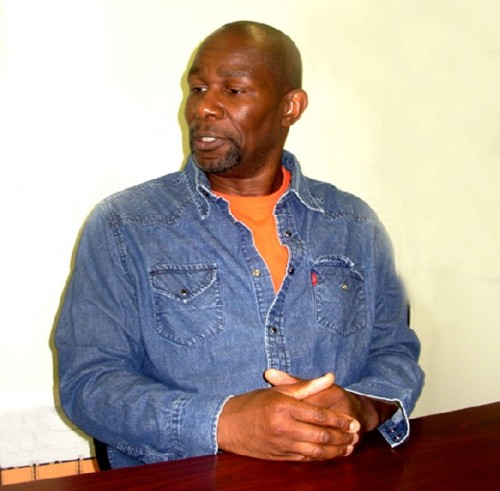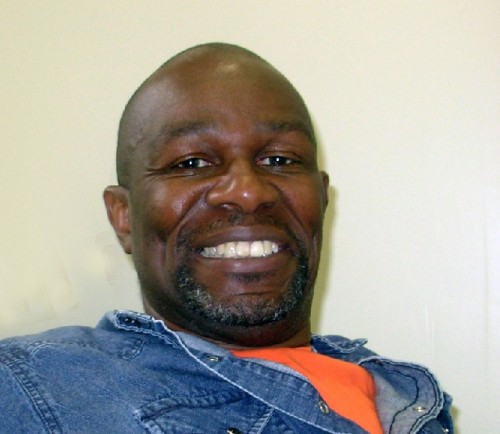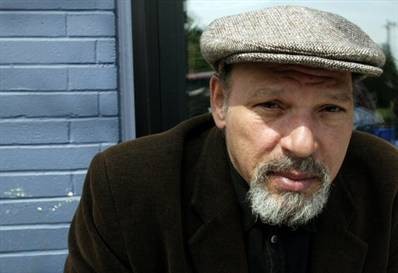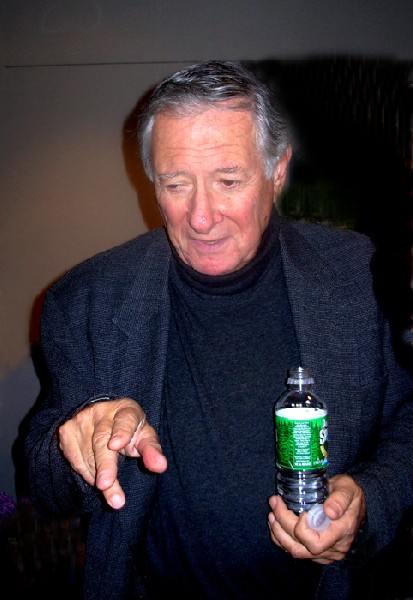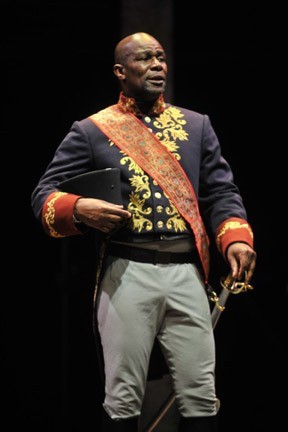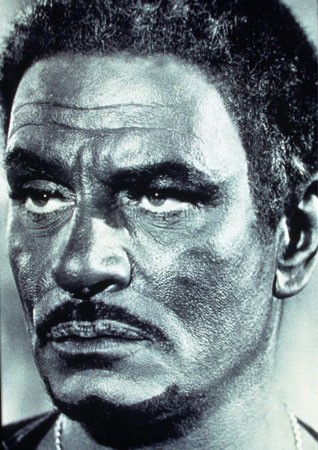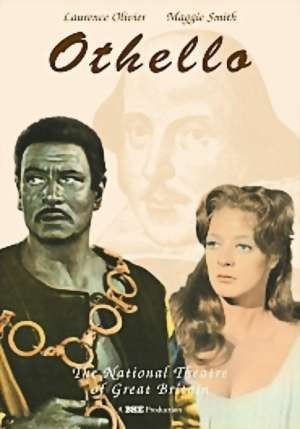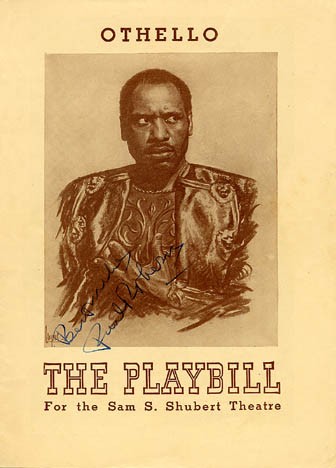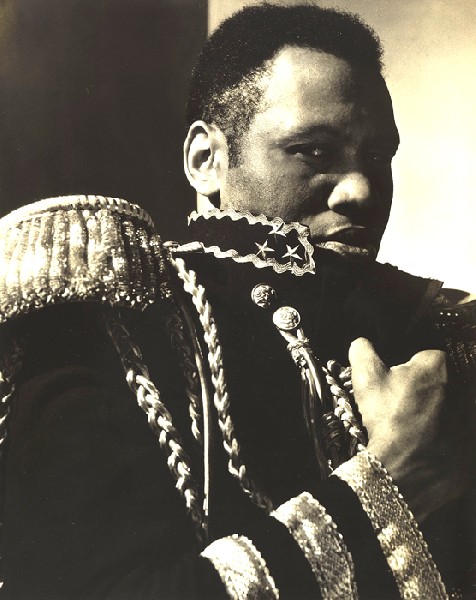John Douglas Thompson at Shakespeare & Company
Redefining Othello As a Love Story
By: Charles Giuliano - Jul 11, 2009
Last summer John Douglas Thompson (born 1964 in England, grew up in Montreal) electrified Berkshire audiences with a riveting performance as Othello at Shakespeare & Company. It was remembered in year end critic lists as the singular dramatic role of the season.
The good news is that Thompson is back through September 6. On August 7 he will appear in a second play to run in tandem "The Dreamer Examines His Pillow." This rarely seen early work by the noted playwright, John Patrick Shanley, will also run through September 6. There is a strong possibility he will be seen this fall Off Broadway in "The Emperor Jones" by Eugene O'Neill.
This provides the opportunity to compare and contrast roles in Shakespeare as well as a contemporary drama. It is evident to Berkshire audiences that Thompson has the talent to be one of the most renowned actors of his generation. Othello is the most dense and complex of all of Shakespeare's male roles and Thompson is among its most compelling contemporary interpreters. It is a matter of time and opportunity before he emerges as a major artist in contemporary theatre.
Thompson, off stage, is a warm, charming, down to earth guy. We quite literally ran into him a couple of weeks ago on our way to another S&Co performance. As he was wandering home from a rehearsal, seemingly lost in thought, I asked "Hey, aren't you Othello?" He graciously stopped and spoke with two perfect strangers. We were soon richly embedded in a dialogue about the play. There was so much that I wanted to know but that night we were off to experience something else.
This week he met with me for what proved to be an emotionally riveting and difficult dialogue. There was an intense release of feelings discussing that great role and its complex history. The character was, in his view, denied to black actors. Allowing (his term) performers of color to play the part has caused significant changes in how it is viewed by critics and academics. By pressing the issues of race there was the risk of provoking Thompson. He grew measured and deliberate in formulating precise responses. It was important for him to state his position and feelings with utmost clarity. By pressing, however, the interview went deeper than the norm. There was risk taking for both of us.
He agreed that there are now far more opportunities for artists of color. Part of the background of that change reflects the fact that we now have a black President Barack Obama and here in Massachusetts, a black Governor Deval Patrick. Who, by the way, has a home in the Berkshires and attended the opening night of "Othello" last summer.
We experienced Thompson for the first time last summer but he is no stranger to S&Co. where he had performed for more than a decade. Recently, he was appointed to the Board of Trustees as a liaison between artists and the Board. It is a nice fit as he majored in business and marketing at Le Moyne College in Syracuse, New York and later worked in sales. Like Paul on the Road to Damascus, at the age of 29, he was blinded by the light of theatre. Well, New Haven actually, where he made a date for theatre at Yale. She stood him up but the play proved to be "Joe Turner's Come and Gone" by the black playwright August Wilson (1945-2005).
That cathartic experience, combined with severance pay when his company downsized, allowed him to study for two years at the Trinity Repertory Conservatory in Providence, Rhode Island. He graduated with a certificate in 1994. He attended a month long workshop at S&Co., then at The Mount, in 1996.
August Wilson had a particular importance to Boston audiences. Several of his plays premiered at the Huntington Theatre Company. This included his last play "Radio Golf" which was produced posthumously and went on to a run on Broadway. Across the river, Robert Brustein, then the artistic director of American Repertory Theatre, famously feuded with Wilson.
"When I saw that play (Joe Turner) it really moved me" Thompson said. "I saw on the stage a piece of theatre which was about black people. But done for the masses and universally understood. I was with the American Repertory Company (ART) for four years where I performed in 'Othello' and as Creon in 'Antigone' and the Cook in 'Mother Courage.' Bob Brustein was good to me and gave me wonderful roles. I understood both sides of their argument and I didn't come down on either side. I consider Brustein as a friend. I came to ART from Trinity where we did 'Merchant of Venice' in which I played Shylock."
I asked if he had ever performed in one of Wilson's plays. "There was a chance to appear in 'Joe Turner' in Baltimore. But at the same time I had an opportunity to appear on Broadway with Kevin Klein in 'Cyrano.' At the time, it seemed like it was more important to be on Broadway so I missed the opportunity. Wilson and 'Joe Turner' are a part of my personal mythology. It is what made me become an actor."
If August Wilson signified the need for Black Theatre with the highest standards and ambitions has that era passed? In the time of President Obama and black politicians like Governor Deval Partick is there a demand for a new Harlem Renaissance? How has this social and political shift opened the door for artists of color? "There is a change and there will be more so in the next few years" he said, "As that impact is reflected in film and TV. There will be more non traditional casting of blacks and Latinos to respond to a more diverse community that we live in."
While Thompson received rave reviews for Othello last summer his history with the role goes back further. When he was a student at S&Co. "They asked me to do 'Othello' as an understudy to John Lee Davenport which was performed at The Mount. (He appears in the current production of 'Hamlet' as the Ghost and several other roles)."
When Thompson appeared in Othello Off Broadway at Theatre for a New Audience in New York he won an Obie Award for the performance. Last summer Ben Brantley of the New York Times wrote "A rare Olympian music — forceful, beautiful and inaudible to ordinary ears — seems to dictate the rhythms of John Douglas Thompson's performance… From the moment he sets foot on the stage of the Founders' Theater here, this truly commanding Venetian general is a figure of monumental poise but also of instinctive, exotic poetry."
We asked if the door had opened for him as a black actor? "That's not how I present myself (as a black actor) but as an interpreter. I always felt that the role of Othello was so powerful but black actors were denied access to it. So it was performed by white actors. And then Paul Robeson performed the role." In 1930 Robeson appeared in London as the first black actor to perform "Othello" in a century. In 1933, Robeson made a film of Eugene O'Neill's 1920 play "The Emperor Jones." We explored some of the similarities in the roles and would return to that subject later.
As we discussed Othello it became clear that he views the character differently. I framed it by asking if Shakespeare was a racist. How was Othello so readily duped by Iago?. Is it possible that while a man of action he wasn't a match for the cunning manipulations of Iago? This provoked a strong response.
"Othello is the defender of his society" he said. "He is so much a hero; a romantic warrior. He is an incredible character. Othello is depicted in the society that existed then. Desdemona and others say of him. 'He is pure of mind, he is pure of spirit, pure of heart." Even Iago says this. But Iago then goes to a default mode because he is passed over. He goes to the ugly side of culture. The racism comes out when people are passed over. Racism is a part of the competitive nature of capitalism. It is created when there is a default switch. I don't like that guy because I am competing with him. You put the other down. For too long blacks were denied the chance to play a great part."
Thompson advanced a different approach to the drama. "The play is a love story between Othello and Desdemona," he said. " If you make it about racism it becomes redundant. Then you are looking at the play through too small a prism. You are seeing just a tenth of it. The goal is to change the paradigm. To open it up as a love story and make the play more human. Where do you allow that access for the audience? How do you express your own humanity?"
He asked if we plan to see the play again this season. I questioned how it would be different? During a busy season critics are reluctant to return to a production which they have already reviewed. "When I revisit a work as an actor I never see it as the same. A scene may look different. A year later I am a different person and that changes the work. It is like looking at a work of art in a museum. There might be a new show by Monet. Would you say I have already seen that? Would you go back and see Monet again? A play grows as you grow. I might understand it better now."
During our brief encounter a couple of weeks ago he had stated that killing Desdemona was "not a murder." We revisited that idea. "He is not a murderer. It is a sacrifice. He is protecting her from herself and others." Sorry I still have trouble grasping that. "Othello is confused. You have to look at what he says. He is a thinker. He is a smart man. He led the Venetians against the Turks. They are terrified by the Turks. They trusted him to be the savior of the nation. He is very capable physically and mentally. Would you call Colin Powell not smart? ( I suggested that Othello was 'not a thinker.') He is a man who has been asked to protect his nation. This is all new to him. He is new to the nation. He is new to the culture. He is new to marriage. It is not as though he has been married two or three times."
What happened to Othello reflects a vulnerability that could happen to any man deceived and betrayed by a friend. "He trusted Iago, "Thompson said, " Who was his ambassador to society. They had fought side by side in battles. They were comrades and friends. He gets pulled down. Othello is an every man. He is the greatest character in Shakespeare. Through the use of poetry he gets to express more than any other character in the canon of Shakespeare's plays. He is the most dynamic character in the canon. He is a man who carries himself with grace but he is susceptible. He is a foreigner. It is the politics of the other.
"This is all a first for him. He is an honest, loving, evolved individual. He expects the same to be done to him. What happened to him could happen to anyone. One thing leads to another. We see this all the time in society. A man is told didn't I see your wife with another man. Not that I excuse or condone violence."
How does it change "Othello" to have a black man play the role? I speculated if it is correct to call Othello black. He is a Moor, an Islamic North African. He is not a Sub Saharan black African. Rather he is a person of color. With the change to blacks being allowed to perform the role Thompson observed that there has been a shift in how critics and academics see the play. There is less attention given to Othello and more interest in Iago. Some go so far as to suggest that it is Iago who is the key character. Arguably, if Othello is the greatest of Shakespeare's characters, then Iago must be the second most challenging role. It is also a part that actors aspire to.
"I want to put the balance back to Othello" Thompson said. "Shakespeare titled the play 'Othello' not 'Iago.' It is clearly Othello whom Shakespeare was fascinated by. I didn't want to be just a participant in a play. I am not going to be a bystander in my own tragedy."
There was finality to that statement. A kind of calm prevailed during which I thanked him for such generosity and passion. I suggested that he may indeed be a definitive Othello for his generation. He responded with some perspective "I am trying to be a contributor to the arena of Othello."
If Thompson is a great Othello just image him in "The Emperor Jones." It seems like a perfect project about which he is excited and hopeful but also concerned. He talked about not really understanding what O'Neill was striving for. Just what is that dark place in himself that he will have to dig into in order to find the character? "I am happy (at the prospect) but terrified" he said. "I don't know what it (Brutus Jones) is. But if I did I wouldn't do it." Exactly.


